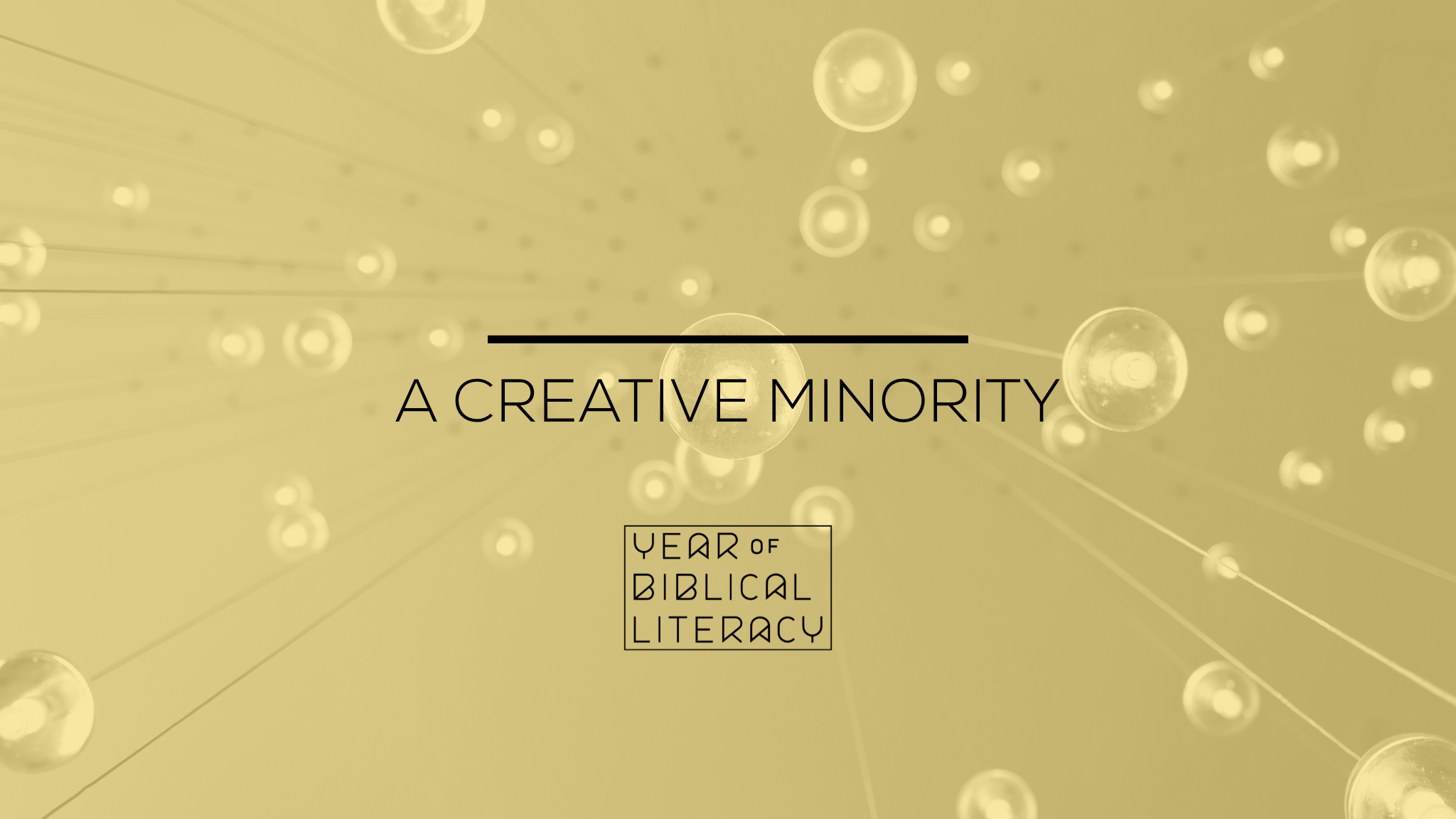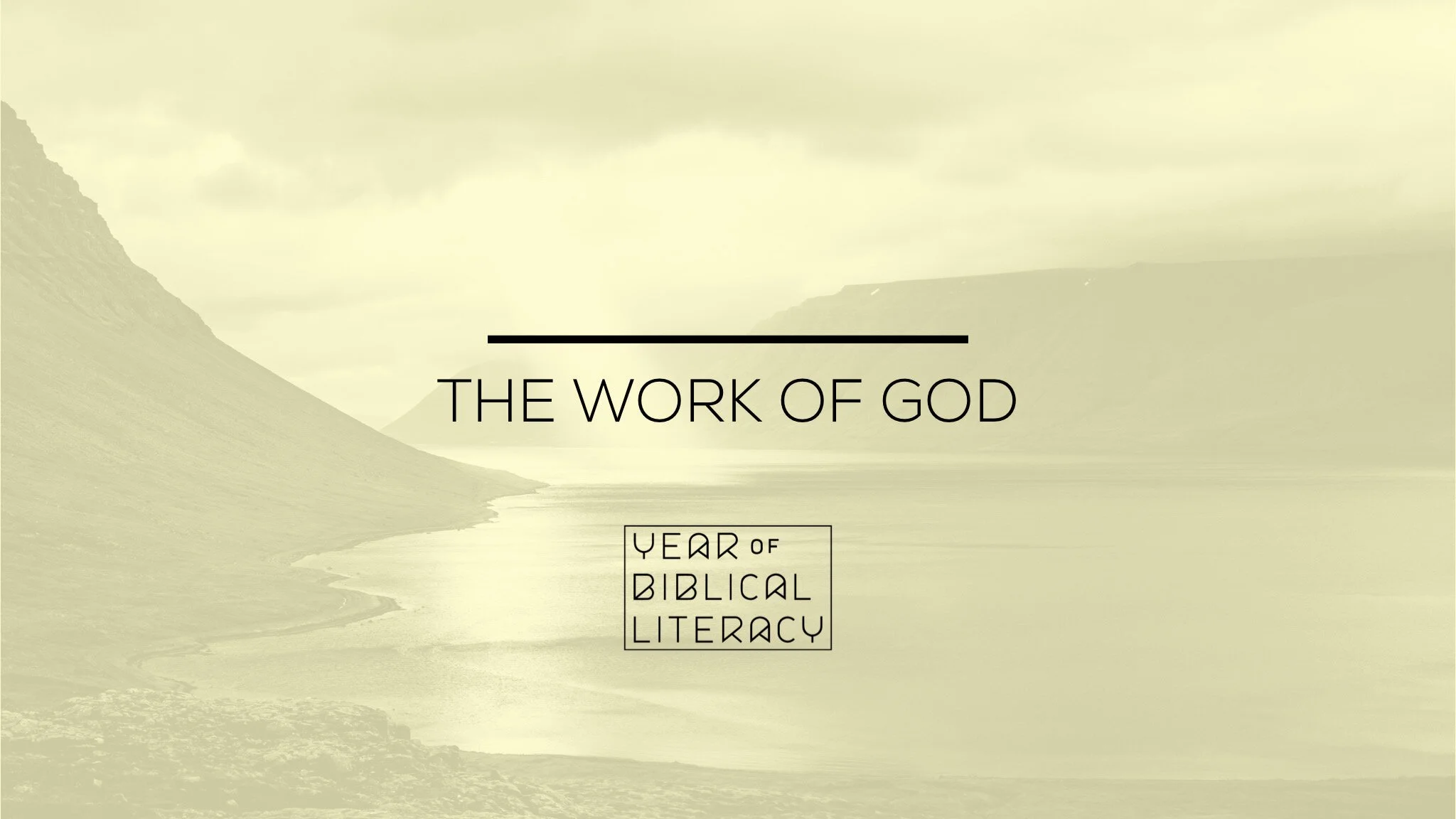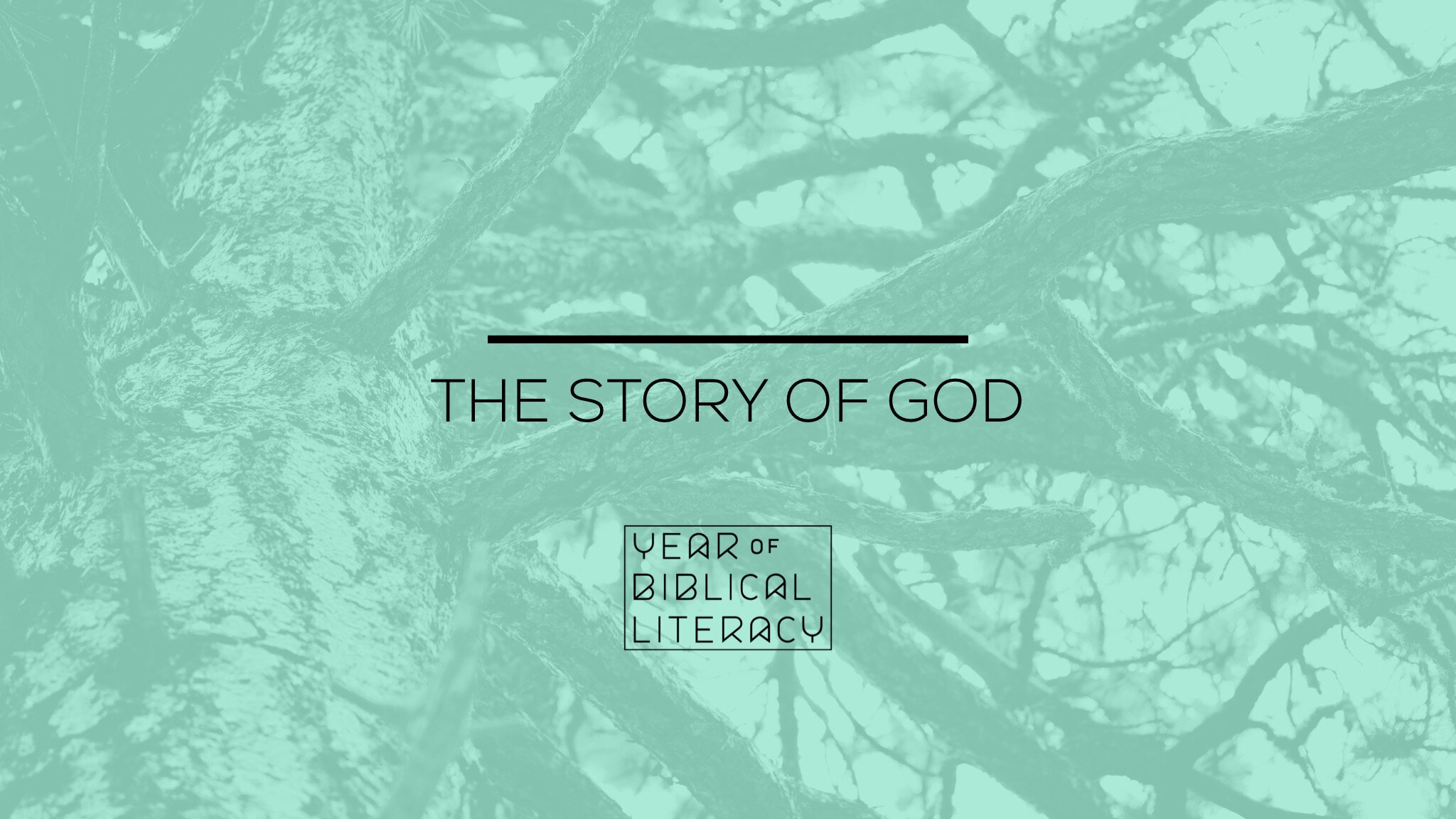For Week 3 in our mini-series, ‘The Moral Vision of the NT,’ we explored Romans 12:3-8 and learned that humble service promotes unity in the community of the church.
For Week 2 in our mini-series, ‘The Moral Vision of the NT,’ we learned that the gospel compels us to be transformed by increasingly yielding to the truth in all we do.
During this last mini-series within the ‘Year of Biblical Literacy,’ we’re exploring ‘The Moral Vision of the NT’ and asking the question: How do our lives continue to tell the true story of God?”
If a disciple is someone who is increasingly submitting all of their lives to the empowering presence of Jesus Christ and teaching others to do the same — Then Jesus’ love is the motivation and power to do that.
Being a disciple of Jesus means being with Jesus, becoming like Jesus, and doing what Jesus does. The more we do this, the more we embrace His service to us and our freedom to truly serve others.
Being a disciple means continually submitting yourself to the lordship and empowering presence of Jesus. The heart of a disciple is obedience fueled by thankfulness and joy.
Because Jesus is God incarnate and the perfect human, he has perfect character. That perfect character enables and equips Him to heal both physical and spiritual illness — especially sin.
The only true Christianity is one where people become disciples of Jesus Christ — Fully submitting every area of their lives to His empowering presence and lordship and teaching others to do the same.
A Creative Minority is deeply committed to responding to the world around us first and foremost with a heartfelt petition to the Lord through prayer — then acting in step with the Spirit.
Not only does a Creative Minority respond externally with alternative allegiance, but they also order their internal lives around it. When we do this, we are more freed to live in the world — by the power of the Spirit — with Redemptive Participation.
As Christians, we are called to live faithfully as dual-citizens of both our earthly home and the Kingdom of Heaven. What does this really look like? Where do our allegiances lie? Listen in as we discuss being a citizen vs. being a zealot.
As Christians, living with both gospel-centered resilience that displays the hope, love, and power of the gospel of Jesus and resistance to anything that does not glorify God are part and parcel of living as a Creative Minority.
Throughout all of the Scriptures, God’s people are called to establish communal and personal rhythms that call us to remember who He is, what He’s done, who that makes us, and what we’re called to do.
Spiritual renewal — Both personal and communal — comes from dying to self. Esther gets this… And she calls God’s people to fast, and mourn, and weep. To seek God. May we do the same.
“The vulnerability that leads to flourishing requires risk, which is the possibility of loss—the chance that when we act, we will lose something we value.” — Andy Crouch
For Christians, the story [of Esther] is a reminder that God doesn’t abandon his people, no matter how dark their circumstances, how compromised their hearts are, or how hidden he may seem.
This past Sunday we concluded our latest, and much anticipated, mini-series within the ‘Year of Biblical Literacy’ called ‘The God I Don’t Understand.’ We dove into the topic of ‘Understanding Evil.’
Love. Sex. Marriage. Few things have become topics of as much debate and contention within our cultural moment. But we must press forward as Christ-followers championing radical embrace and radical obedience.
What is Holy War? What does God really mean when he tells Israel to ‘utterly destroy’ certain people? Is this genocide? Explore with us as we tackle some serious objections to the Bible.
We’re starting our latest mini-series within the ‘Year of Biblical Literacy’ called ‘The God I Don’t Understand.’ Up first, we dove into the topic of ‘Understanding the Old Testament.’
This past Sunday we finished our latest mini-series with the ‘Year of Biblical Literacy’ called ‘The School of Life’ by looking at the book of Proverbs and discussing‘How Wisdom Leads to the Good Life.’
This past Sunday we continued our newest mini-series with the ‘Year of Biblical Literacy’ called ‘The School of Life.’ This week we were joined again by our good friend, Mike Wilcox.
This past Sunday we started a new mini-series with the ‘Year of Biblical Literacy’ called ‘The School of Life.’ This week we were joined by our good friend, Mike Wilcox.
This past Sunday we continued into a new mini-series called ‘The Prophet’ by exploring ‘The Hope & Plan of God’ and really diving into the meta themes of ‘doing’ righteousness and justice.
This past Sunday we launched into a new mini-series called ‘The Prophet.’ Up this week we explored the heavy topic of ‘The Pain & Anger of God.’ Take a listen.
This past Sunday we finished our third mini-series in the ‘Year of Biblical Literacy’ called, ‘The Symbols of Christ.’ For Week 4 we explored the symbol of the meal in/throughout the Scriptures..
This past Sunday we continued our third mini-series in the ‘Year of Biblical Literacy’ called, ‘The Symbols of Christ.’ For Week 3 we explored the symbol of water in/throughout the Scriptures..
This past Sunday we started our third mini-series in the ‘Year of Biblical Literacy’ called, ‘The Symbols of Christ.’ Up first, we dove headlong into learning about the Cross.
This past Sunday we started our third mini-series in the ‘Year of Biblical Literacy’ called, ‘The Symbols of Christ.’ Up first, we dove headlong into learning about the Cross.
We’ve been exploring the 4 Acts of the Bible: Creation, Fall, Redemption, Restoration and for Week 6, we explored how all things will be completed and perfected in the ‘Restoration.’
This week, explored how God’s plan for ‘Redemption’ continues in the Spirit of God working through the Church to declare and demonstrate the Kingdom of God.
Christianity, if false, is of no importance, and if true, of infinite importance. The only thing it cannot be is moderately important. Click to listen to, ‘Jesus Is Everything.’
This past Sunday we continued our second mini-series in the ‘Year of Biblical Literacy’ called, ‘The Story of God.’ Take a listen as we talk about God’s covenant partnership with Israel and how it applies to us today.
This past Sunday we continued our second mini-series in the ‘Year of Biblical Literacy’ called, ‘The Story of God.’ Take a listen as we learn from Char Brodersen about ‘The Fall.’
This past Sunday we started our next mini-series in the ‘Year of Biblical Literacy’ called, ‘The Story of God.’ Take a listen as we learn about God’s ‘Good Creation.’
How we interpret the Bible is of the utmost importance, because how we interpret the Bible determines how we apply the Bible and how we apply the Bible carries eternal significance.
This week we dove headfirst into a vital topic… and one that many of us are totally confused by — the origins of the Bible. Where did it come from and can we trust it?
For many of us, part of the problem with our relationship with the Bible is that we’ve never really stopped to consider the question, ‘What is the Bible really for?’
We kicked the Year of Biblical Literacy with a four-part mini-series called ‘The Bible & Authority.’ This first week we talked candidly about some of the problems that we have with the Bible.








































This past Sunday we dove into the topic of ‘Understanding Judgement’ and tackled a topic that usually leads to a lot of dissonance amongst Christians and non-Christians alike.